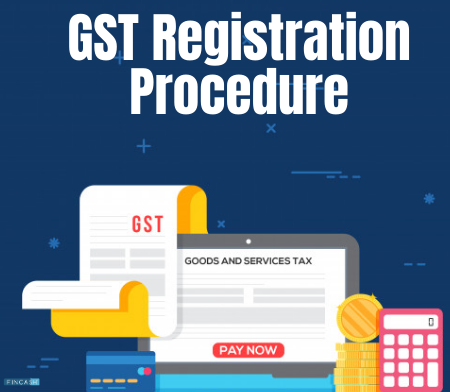Throughout: The Ultimate Roadmap to GST Enrollment for Businesses Seeking Financial Security
Browsing the intricacies of Product and Solutions Tax Obligation (GST) registration is an important action for organizations striving for economic security. Breaking down the roadmap into convenient actions can enhance the registration journey for companies looking to enhance their economic standing.
Comprehending GST Fundamentals
Digging right into the essential principles of Item and Services Tax (GST) is important for obtaining a comprehensive understanding of its ramifications on organizations and the economy. Input Tax Obligation Credit Rating (ITC) is a substantial function of GST, permitting companies to assert credit score for tax obligations paid on inputs, reducing the general tax worry. Understanding the essentials of GST is important for organizations to abide with tax obligation regulations, handle their finances effectively, and add to the country's economic growth by participating in a clear tax obligation system.
Eligibility Standards for Registration
To register for GST, businesses should satisfy certain eligibility standards developed by the government. The key eligibility need is that any service associated with the supply of products or solutions with a yearly aggregate turn over above the threshold restriction established by the authorities have to register for GST. Since the current policies, the threshold limit for GST enrollment is a yearly aggregate turn over of 40 lakhs for services operating within a state, except for special classification states where the limitation is 20 lakhs. Furthermore, specific businesses are required to sign up for GST irrespective of their turnover, such as interstate vendors, informal taxed persons, and organizations liable to pay tax obligation under the reverse charge mechanism. It is critical for businesses to extensively assess their turn over and deal kinds to establish their GST registration commitments precisely. Failing to register for GST when eligible can cause penalties and legal effects, making it essential for businesses to stick to the defined qualification standards.
Documents Needed for Enrollment
Having actually met the qualification criteria for GST registration, organizations have to currently guarantee they have the requisite records in location to continue with the enrollment procedure successfully. The files required for GST registration generally consist of proof of service constitution, such as collaboration deed, registration certification, or incorporation certificate for various types of businesses. Furthermore, companies need to supply documents establishing the principal location of service, such as a rental contract or power bill.
Step-by-Step Enrollment Process
Following, all required documents as per the list supplied by the GST portal need to be posted. These papers usually consist of evidence of organization registration, address and identity proofs of promoters, monetary declarations, and organization entity's PAN card.

Post-Registration Conformity Guidelines

Final Thought
To conclude, organizations seeking financial stability has to recognize the fundamentals of GST, fulfill eligibility requirements, gather necessary papers, adhere to the detailed registration procedure, and follow post-registration standards - Best GST registration services in Singapore. By sticking to these steps, organizations can make sure conformity with tax obligation laws and maintain monetary security in the future
Furthermore, specific services are needed to register for GST irrespective of their turn over, such as interstate distributors, casual taxed persons, and companies liable to pay tax obligation under the reverse charge system.Having fulfilled the eligibility requirements for GST enrollment, services should currently ensure they have the requisite files in area to continue with the registration procedure effectively. The documents required for GST registration typically include evidence of business constitution, such as collaboration action, registration certificate, or unification certificate for different kinds of companies. Additionally, companies require to supply records establishing the principal area of business, such as a rental arrangement or electrical power bill.Commencing the GST registration process entails a series of organized actions to make sure a compliant and smooth enrollment for companies.
Comments on “Comprehending the Perks of the very best GST Registration Services in Singapore”